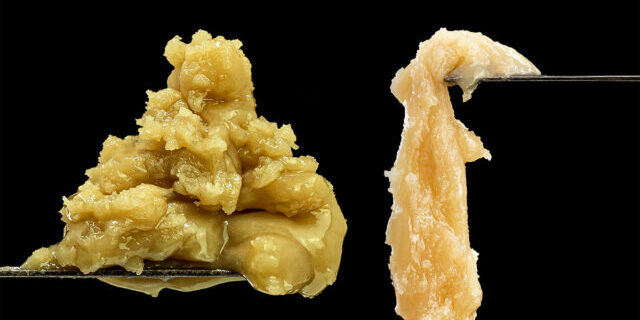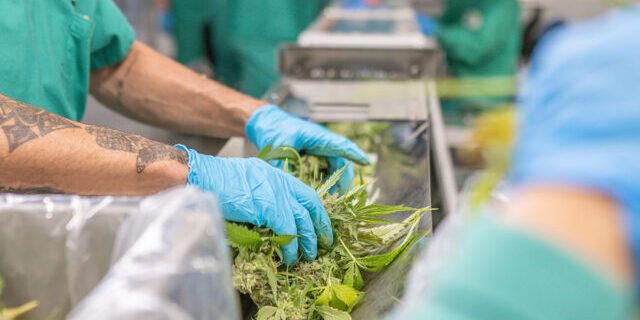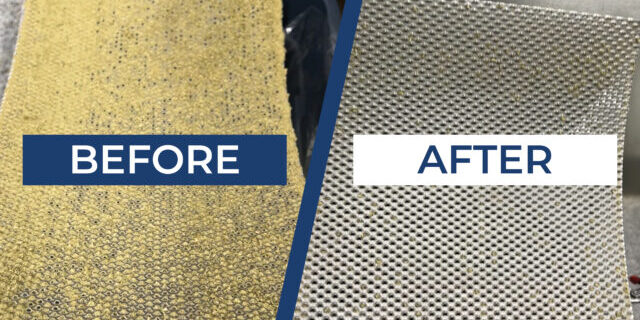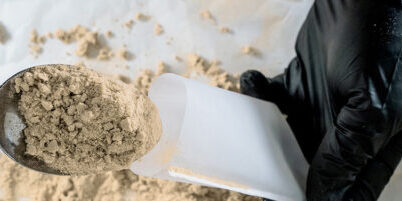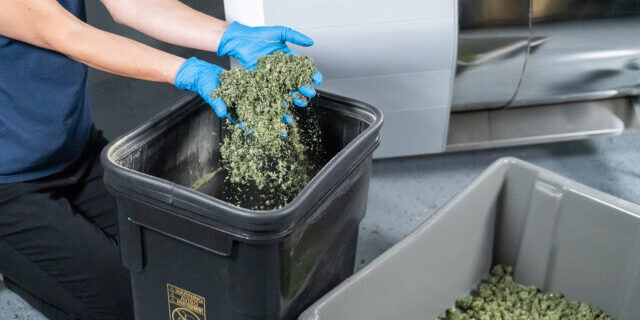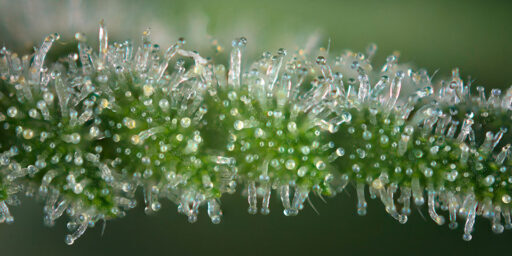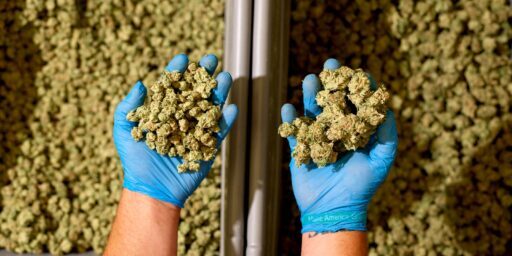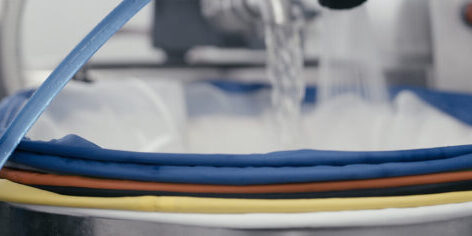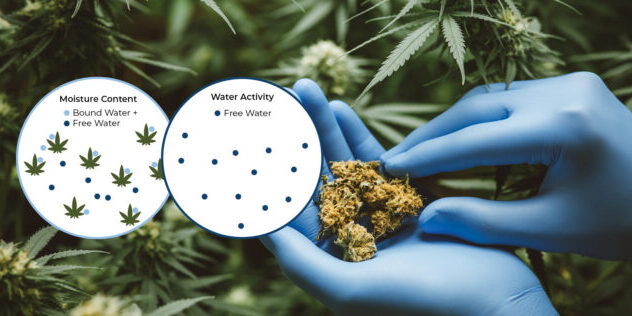4 Things You Can Do to Jump-Start GMP in your Commercial Cannabis Facility
If you’re not familiar with GMP (Good Manufacturing Practices), first read our GMP Primer, then come back to this post.
We know that GMP certification isn’t required in cannabis cultivation facilities yet, but it’s coming, and depending on where you’re located, it could be sooner than you think. Don’t let the regulations sneak up on you! Get a jump-start on compliance by taking these four simple actions.
1. Ditch the Junk + Deep Clean!
This relates to the PREMISES portion of compliance. GMP requires that pharmaceutical and/or food production environments are designed and constructed in a manner that permits cleanliness and orderliness while preventing contamination, so clean out that junk that’s been piling up in the corner of your cannabis drying room, check your building envelope for openings that could allow for pests to get in (and seal any that you find), and perform that floor to ceiling spring cleaning you’ve been putting off for a few harvests.
Once you have decluttered and performed a deep clean, you’ll wonder why you didn’t do it earlier and be motivated to keep it that way!
2. Keep maintenance records! Inspect, inspect, and inspect again!
This relates to the EQUIPMENT portion of compliance. One of the goals of GMP is to prevent the contamination of drugs/food by dust, by other drugs/food, and by foreign materials such as rust, lubricant and particles coming from the equipment. There’s no time like the present to give your cannabis harvesting and processing equipment a thorough visual inspection and review your maintenance records. Not keeping records? Start now! Set up a maintenance and inspection schedule and stick to it. Most of the time, a little TLC will bring your gear up to snuff, but if you find yourself going through bulk quantities of WD40 or duct tape to patch up your equipment, perhaps it’s time to think about retiring your old stand-by and investing in a new piece of equipment.
And remember, GMP is not just about getting your equipment ship shape for inspection day, but about keeping it that way over the long term. Regular maintenance and record keeping are essential.
3. Keep your team trained, and get new hires up to speed FAST!
This relates to the PERSONNEL portion of compliance. People are the most important element in any pharmaceutical or food production operation – without the proper personnel with the appropriate attitude and sufficient training, it is almost impossible to fabricate, package, label, test, or store good quality drugs and/or food.
The operations involved in the fabrication of cannabis products are highly technical in nature and require constant vigilance, attention to details and a high degree of competence on the part of employees, therefore, your goal should be to adhere to the KISS Principle: Keep It Simple, Stupid. The KISS Principle states that most systems work best if they are kept simple rather than made complex. Keeping the KISS Principle in mind, perform a review of your SOPs (Standard Operating Procedures). Are they simple and straightforward? Is unnecessary complexity avoided? Are there steps that can be automated or eliminated altogether?
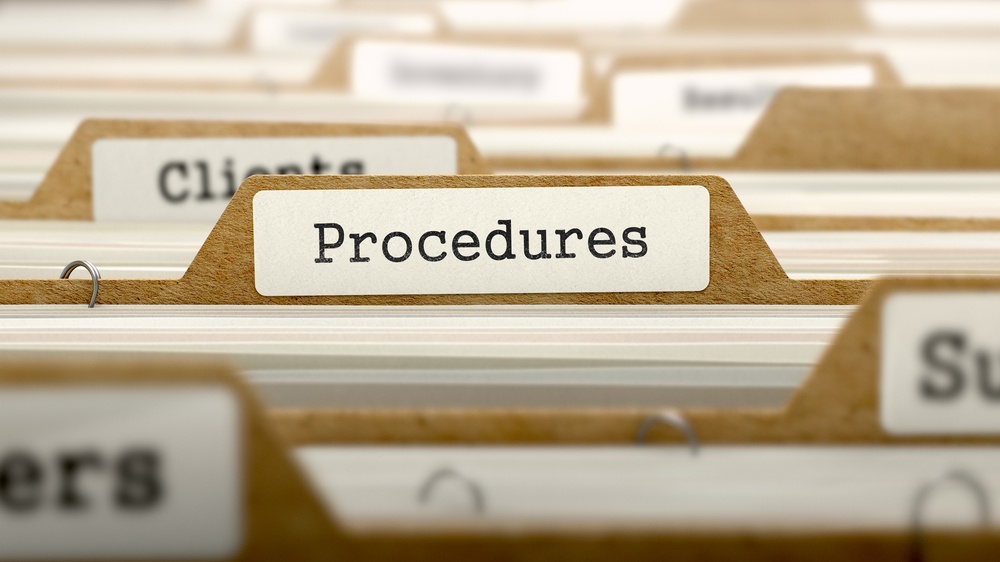
Next, take a look at your onboarding practices for new employees or for people moving from one role to another within your organization. Are you setting them up for success or for failure? How long does it take to become fully competent in a given role and how much turnover are you experiencing for that position?
Improving your hiring practices, training program and SOPs is a big investment, but it can result in a big payoff too in the form of reduced turnover, fewer workplace injuries, increased production quality and, ultimately, a positive bump to your bottom line.
4. Clean well, and on a schedule!
This relates to the SANITATION portion of compliance. Sanitation in a food or pharmaceutical plant influences the quality of food and drug products, and helps ensure the products are safe for consumption. A written sanitation program provides some assurance that levels of cleanliness in the plant are maintained and that the relevant regulatory provisions are satisfied.
If you don’t already have a written sanitation program, it’s never too late to start. Whether you’re starting from scratch or reviewing an existing program, your written sanitation program should address each of the following three key points:
- Ensuring the cleanliness of the premises;
- Ensuring the cleanliness of any and all equipment used in your operations; and
- Ensuring employees are trained in and follow all required sanitation procedures.
Getting your cannabis cultivation facility GMP-certified (or at least aligned with GMP principles) can seem like a daunting task, but it doesn’t have to be. The hardest part is getting started! Follow the above four actions and you’ll be well on your way.

.png)
